I gazed upon my new set of wheels with utter contentment. I had waited a long time to own this masterful piece of machinery, and after searching for ages, my hard work paid off. The black metal glinted in the sun, accentuating its fine contours and sophisticated lines. I ran my hands over my new acquisition, not believing that after all this time, I finally had a set of wheels of my own!
With time, I learned how to drive it like a pro. Of course,I was a bit upset when the wheel came off–but Kolbo Tikkunim, our local all around fix it man (who goes around in his white van offering a list of all his handyman services via megaphone) took it in and brought it back good as new. Aside from that little episode, my wheels and I have come to a sort of understanding; and except for that slight quirk with the turning mechanism (it doesn’t really turn so well around corners), it drives like a dream. Oh, I almost forgot—I actually do encounter a problem when I drive on the sidewalk, when kids don’t realize they should get out of my way—and fast. As I said—the turning mechanism can be a bit of an issue,especially when it’s loaded to capacity with groceries.
No need to worry, though. My wheels don’t even have an engine. Nor doors. Or seats. Or a battery. Or roof. Not even windows or a steering wheel. My beautiful contraption is what is termed, in politically incorrect terminology, as a “Granny Cart”. Those box shaped metal big wheeled contraptions usually toted by grandmothers around Lincoln Avenue in Miami Beach as they do their shopping. In the years we lived in Miami, I would never have been caught with one of those things. Ever.
About a year before we made Aliyah, (not knowing that we were going to make Aliyah), my husband purchased the car of my dreams — a GMC Chevy Suburban — a truly masterful piece of machinery. Complete with sunroof and leather seats that heated in winter (an absolute must in Miami), it also came with a great sound system and a DVD player and screen that came down from the interior roof –so that the kids could be electronically sedated to and from school. And the trunk—what a trunk! I could fit a stroller, plus all my Costco and Target shopping in one trip—and I still had room to spare! If the kids fought while I drove,and I threatened to put them in the trunk—I could! Our family drove around in complete comfort, cushioned by this epitome of the American dream—a car so indicative of the American mentality of the need to always be ‘cushioned’ from reality, and from all the bumps–both literal and figurative ones—that one may encounter on the road of life.
And then, before we knew it,we found ourselves on a flight bound for Israel, leaving our families—and our car—thousands of miles behind.
Upon arriving in the Holy Land, we walked (or rather, staggered) into our beautifully appointed apartment,(with sixteen boxes, seven carry-ons and a few sleepwalking children) and I took in the gorgeous view of the Judean hills—and I cried (it wasn’t jet lag). My kitchen, the one strike against our new abode, was a hotdog stand (as my dear friend so aptly put it—she had one too. There were barely counters to speak of, and an empty space where the oven and stove top should have been. No dishwasher! Hashem—where was the dishwasher?!
The first few Shabbats, the food was salted by my tears. With counters full of hot dishes waiting to cool (as if this wasn’t enough to be grateful for), I stood in the middle of my small kitchen, steaming pot in hands, crying copious tears because I had nowhere to put it. I thought of the ease of preparing for Shabbat in our previous life, with two convection ovens baking at full throttle, endless black granite counters waiting to accept whatever food I prepared. Having remodeled our kitchen just a couple years prior to Aliyah, I couldn’t believe that I was making a full Shabbat on nothing more than a Bunsen burner. I felt like I was not capable of such a challenge! It reminded me of the family legend my mother was wont to tell, about our great grandmother from Syria. Upon arriving to Eretz Hakodesh, her proud son showed her around a fully equipped Israeli kitchen. Despite this, great grandmother Esther decided to sit on the floor, light a fire and cook, like she did in the ‘old country’. Well, I felt a certain kinship to her, as I wasn’t so far behind!
Now, five years later, I laugh at the me I used to be. I came with a whole list of ‘rights’ to this blessed Land–and they weren’t Olim (immigrant) rights. They were the rights and entitlements I felt were due me, simply because I was a member of the human race, and an American to boot! (disclaimer: this is not meant to offend Americans). Like a petulant child, I was stubborn in the face of my new challenges. Instead of purchasing a stove top and an oven to make my life easier, I held out, and continued cooking on two electric plug-in burners. I wanted — rather, felt — that I was entitled to a new kitchen, complete with dishwasher and a double oven. I bid my time—for about a year, until common sense and desperation won out.
Now, I am the proud owner of a full set of burners and an oven. And a dishwasher, which took another three years until its arrival. The day it arrived, I literally put my arms around it and gave it a hug (as much as it is possible to hug a dishwasher). Except this time, I didn’t feel it was an entitlement of mine, but a gift from Hashem. And that, was a greater gift than the dishwasher itself.
For that is the biggest challenge that I faced as a new immigrant in the Holy Land. The ability to not only let go of luxuries that I thought were necessities, but to accept that in this world we are entitled to nothing—and yet Hashem gives us everything. Every convenience, every comfort that we take for granted—are all gifts from Hashem, and are the icing on the proverbial cake that He constantly gives us.
It took me a good few years for this lesson to sink in. As I would walk up a seemingly endless hill, under a sun whose heat threatened to melt me, I would stop, and think, “I once had a car…” and I would begin my very own personal pity party. And now, after my hard earned and newly acquired shift in perspective, I have learned to say, “Baruch Hashem! I can walk—not only can I walk, but I can stay in shape, and get the exercise I need!”
The other day my daughter was reminiscing about a Shabbat many years ago, when we had driven to my parents’ house on erev Shabbat. Come Sunday, the car was still at their house, and we were stuck at home—without a car. My daughter had asked if we could walk there to get it, and I had looked at her askance, as if she had lost her mind. It was, after all, a seven minute walk away! So we stayed, ‘stranded’ at home. As we thought about it, we began to laugh the laugh of those wizened—seven minutes is now considered ‘around the corner’. And that is the blessing of this Land—the ability for a person to achieve a complete metamorphosis of self—with Hashem’s help, simply by being here!
Now, whenever Shabbat guests comment in wonderment at my ability to make such big meals in such a small space, I turn my eyes upwards to The One Who deserves the credit. I have had to become super organized and efficient— added bonuses gained in the process, unlikely achievements had I stayed in my cocoon of comfort and ease.
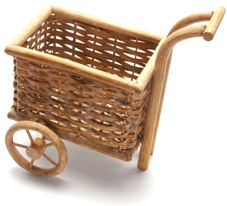 As I wheel my ‘granny cart’ down the street, I entertain the idea once more of the bumper stickers I want to put on its back ‘fender’: Car-Less Does Not Mean Far-Less, or Mom’s Mean Metal Machine—and of course—Mom Overboard. I relish the ‘drive’ to the store, that hard earned sense of freedom creeping up on me once again. For I realize now that even though I once upon a time lived in the ‘Home of the Free’, I was actually not so free—free of the notion that I was entitled to my possessions, which in the end owned me—and not the other way around. And that goes for any of the other continuous gifts Hashem constantly gives us as well, like health and livelihood. My metal shopping cart has come to symbolize my relinquishment of Control to the Master Driver—and to the abandonment of that pervasive sense of entitlement which always plagued me.
As I wheel my ‘granny cart’ down the street, I entertain the idea once more of the bumper stickers I want to put on its back ‘fender’: Car-Less Does Not Mean Far-Less, or Mom’s Mean Metal Machine—and of course—Mom Overboard. I relish the ‘drive’ to the store, that hard earned sense of freedom creeping up on me once again. For I realize now that even though I once upon a time lived in the ‘Home of the Free’, I was actually not so free—free of the notion that I was entitled to my possessions, which in the end owned me—and not the other way around. And that goes for any of the other continuous gifts Hashem constantly gives us as well, like health and livelihood. My metal shopping cart has come to symbolize my relinquishment of Control to the Master Driver—and to the abandonment of that pervasive sense of entitlement which always plagued me. And that, in itself, has been the best present of all!


 As I wheel my ‘granny cart’ down the street, I entertain the idea once more of the bumper stickers I want to put on its back ‘fender’: Car-Less Does Not Mean Far-Less, or Mom’s Mean Metal Machine—and of course—Mom Overboard. I relish the ‘drive’ to the store, that hard earned sense of freedom creeping up on me once again. For I realize now that even though I once upon a time lived in the ‘Home of the Free’, I was actually not so free—free of the notion that I was entitled to my possessions, which in the end owned me—and not the other way around. And that goes for any of the other continuous gifts Hashem constantly gives us as well, like health and livelihood. My metal shopping cart has come to symbolize my relinquishment of Control to the Master Driver—and to the abandonment of that pervasive sense of entitlement which always plagued me.
As I wheel my ‘granny cart’ down the street, I entertain the idea once more of the bumper stickers I want to put on its back ‘fender’: Car-Less Does Not Mean Far-Less, or Mom’s Mean Metal Machine—and of course—Mom Overboard. I relish the ‘drive’ to the store, that hard earned sense of freedom creeping up on me once again. For I realize now that even though I once upon a time lived in the ‘Home of the Free’, I was actually not so free—free of the notion that I was entitled to my possessions, which in the end owned me—and not the other way around. And that goes for any of the other continuous gifts Hashem constantly gives us as well, like health and livelihood. My metal shopping cart has come to symbolize my relinquishment of Control to the Master Driver—and to the abandonment of that pervasive sense of entitlement which always plagued me. 

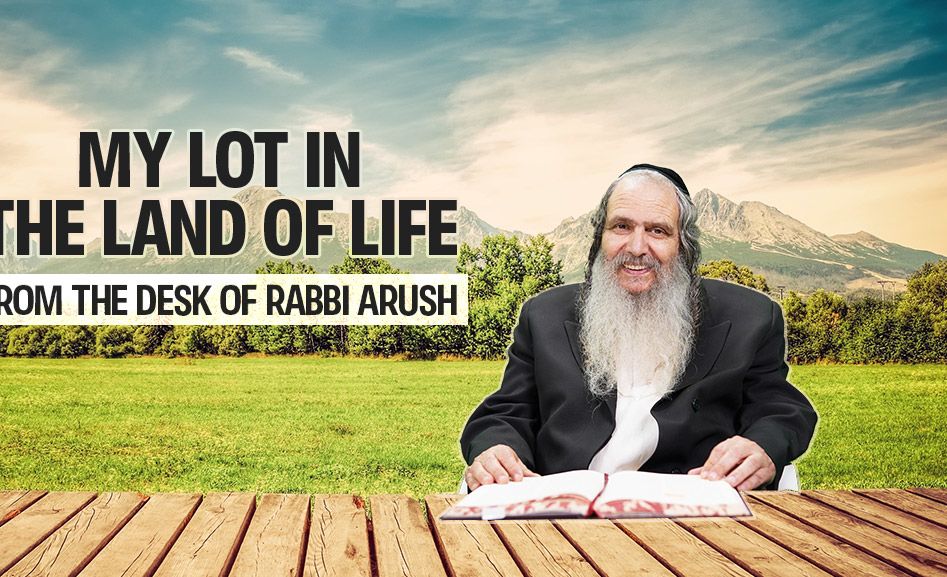
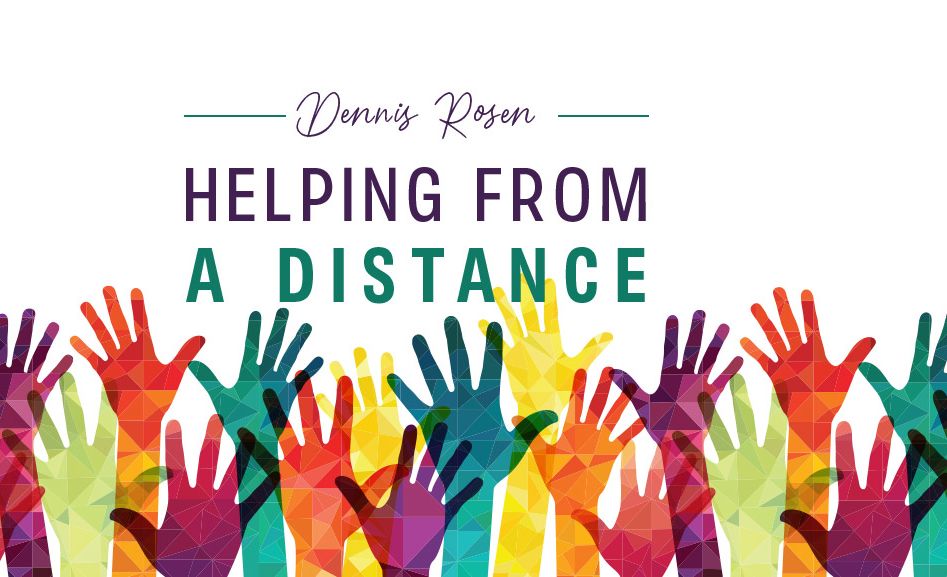


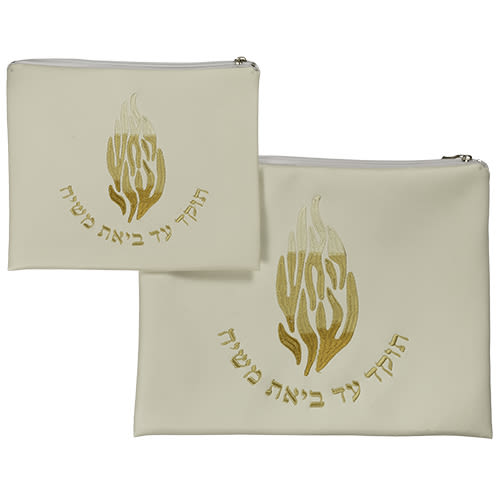
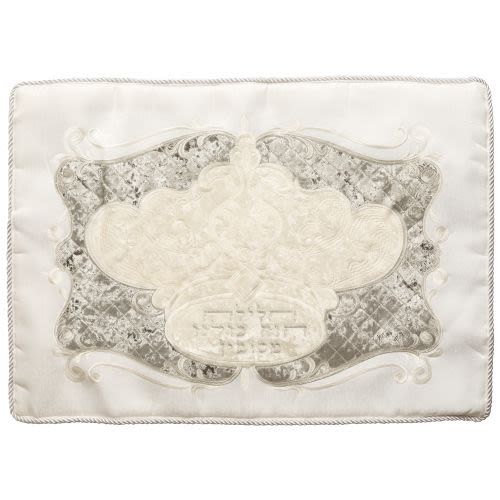


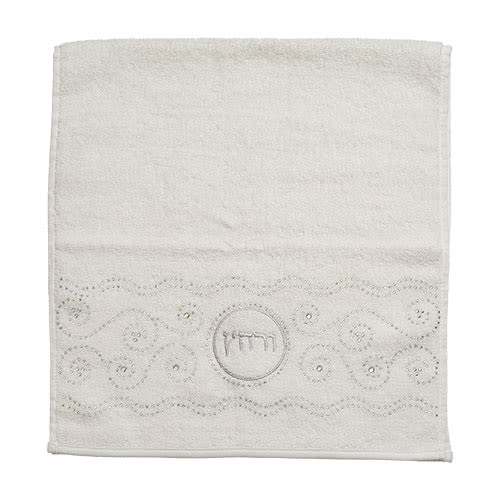
Tell us what you think!
Thank you for your comment!
It will be published after approval by the Editor.